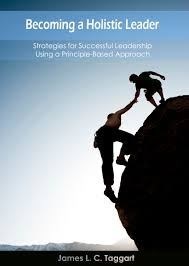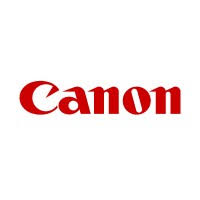Dealing with the Revolving Door: Why Knowledge Transfer is Vital to Organizational Success: (Part One)

Even when the economy tanks and private and public sector organizations give the heave-ho to people, maintaining corporate knowledge (or know-how) is a competitive asset. Or if you work in the public sector (as yours truly did for three decades), corporate knowledge is vital to how citizens are served.
The revolving door syndrome has been going on for years and will only accelerate as Baby Boomers continue to head for the exits in growing numbers. Rather than wringing your hands, if you happen to be an executive or someone actually concerned with the massive loss of what translates to millions of person-days of valuable corporate know-how, this four-part series aims to provide ideas and helpful information on how to effectively address this problem.
Knowledge transfer (KT) is not a cookie-cutter recipe, in which organizations merely replicate what their competitors are doing. The information provided here may be viewed as a framework with which to develop a customized corporate strategy on how to facilitate the sharing and flow of information, the generation of knowledge (yes, it’s different from information), and how to retain what is important to the organization’s mission. You certainly don’t want to retain everything.
So here we go.
Different methods obviously need to be used to capture and transfer the knowledge that’s created in an organization. And this depends on the nature of the knowledge and to whom it benefits (or is directed). An organization shouldn’t rely on just one or two methods of knowledge transfer, but instead employ a variety of diverse, yet complementary approaches.
Call it your KT toolbox.
Knowledge creation is not a linear process, but one that’s dynamic and involving both tacit and explicit knowledge. The former refers to the contextual knowledge that’s generated by people through their experiences. It resides primarily in people’s heads. The latter is knowledge that’s codified or documented, whether in manuals, reports, policy documents or on hard-disks or servers.
Of particular importance is understanding that knowledge is not the domain of subject matter experts. It’s a collective responsibility of everyone within an organization to share information and contribute to the formation of new knowledge, in turn enabling the fulfillment of its mission.
However, it’s not enough to trust that sharing alone is sufficient. The appropriate processes, which fit within the organization’s culture and business, need to be put in place to maximize information sharing and knowledge creation.
Facts are stubborn things, but statistics are more pliable.
(Laurence J. Peter, of “The Peter Principle”)
Next Post: Internal Team Transfer: After Action Reviews
___________________________________________________________________________________________________

Visit Jim’s e-Books, Resources and Services pages.
Articles from Jim Taggart
View blog
The following 10 lessons are not aimed at just those who wish to move into managerial positions; the ...

When we look back to the 20th Century and reflect on great leaders, whether leading nations, organiz ...

In the previous post Is Your Team REALLY a Team? Why Instant Pudding Doesn’t Cut It we looked at the ...
Related professionals
You may be interested in these jobs
-

Lead Generation Representative
Found in: beBee S2 CA - 6 days ago
Canon Canada Edmonton, Canada TEMPORARYCanon has been at the forefront of digital imaging solutions for more than 80 years. We've established a diverse culture that's made us a respected and successful industry leader. Canon's corporate philosophy is Kyosei: all people, regardless of race, religion, or culture, harmon ...
-
hairdresser
Found in: Talent CA 2 C2 - 19 hours ago
COIFFURE & BOUTIQUE CISCA INC. Montreal, CanadaEducation: · Expérience: · Education · Registered Apprenticeship certificate · or equivalent experience · Work setting · Urban area · Barbershop or hairstyling salon/studio · Tasks · Book appointments · Cut and trim hair according to client's instructions or preferences · Shamp ...
-
administrative assistant
Found in: Talent CA 2 C2 - 3 days ago
839466 Yukon Inc. Whitehorse, CanadaEducation: · Expérience: · Education · Secondary (high) school graduation certificate · Tasks · Answer telephone and relay telephone calls and messages · Order office supplies and maintain inventory · Set up and maintain manual and computerized information filing systems · Type ...


Comments
Jim Taggart
5 years ago #3
This is one of leadership's big challenges: facilitating the flow and sharing of information.
Jim Taggart
5 years ago #2
Your last comment is especially relevant, since hoarding information in the pursuit of either keeping one's job or for career advancement undermines organizational effectiveness.
Ali Anani
5 years ago #1
I agree with you Chris \ud83d\udc1d Guest. Amazing your comment is as I am planning to write a buzz on the growth of human relations. Jim Taggart. You revolved the door of knowledge, but there are many who are willing to block it. Sadly, some people don't realize that it is the transfer of knowledge that leads to novelty. Knowledge-sharing is a prerequisite to organizational development. Some people wish to keep knowledge as a form of self-protecting.